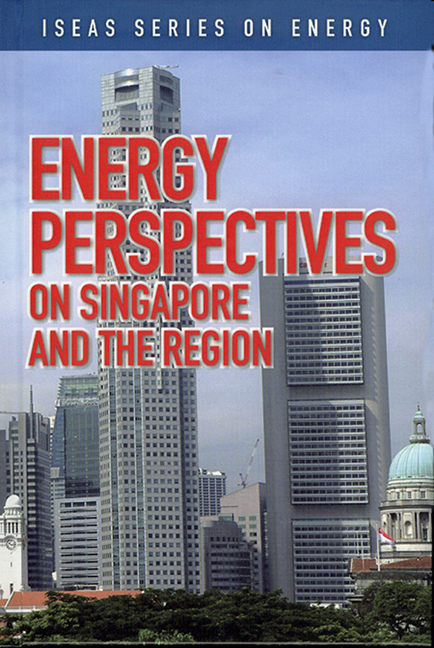Book contents
- Frontmatter
- Contents
- Foreword
- Preface
- The Contributors
- 1 Overview of Singapore's Energy Situation
- 2 Singapore's Changing Landscapes in Energy
- 3 Singapore's Role as a Key Oil Trading Centre in Asia
- 4 Large-Scale Solar PV Power Generation in Urban High-Rise Buildings in Singapore
- 5 The High-Carbon Story of Urban Development in Southeast Asia
- 6 Renewable Energy and the Environment: Technology and Economic Perspectives
- 7 Delivering Results in a Booming Rig Market
- 8 The Success Story of Rig Building in Singapore
- 9 The Singapore Oil Situation
- 10 Singapore Petroleum Company: Adding Value to the Singapore Oil Industry
- 11 Oil Storage: The Singapore Story
- REGIONAL and INTERNATIONAL
- Index
1 - Overview of Singapore's Energy Situation
Published online by Cambridge University Press: 21 October 2015
- Frontmatter
- Contents
- Foreword
- Preface
- The Contributors
- 1 Overview of Singapore's Energy Situation
- 2 Singapore's Changing Landscapes in Energy
- 3 Singapore's Role as a Key Oil Trading Centre in Asia
- 4 Large-Scale Solar PV Power Generation in Urban High-Rise Buildings in Singapore
- 5 The High-Carbon Story of Urban Development in Southeast Asia
- 6 Renewable Energy and the Environment: Technology and Economic Perspectives
- 7 Delivering Results in a Booming Rig Market
- 8 The Success Story of Rig Building in Singapore
- 9 The Singapore Oil Situation
- 10 Singapore Petroleum Company: Adding Value to the Singapore Oil Industry
- 11 Oil Storage: The Singapore Story
- REGIONAL and INTERNATIONAL
- Index
Summary
This chapter seeks to present an overview and introduction to energy development and conservation in Singapore.
In October 2002, speaking at an Energy Forum, then Deputy Minister for Trade and Industry and Foreign Affairs, Raymond Lim, stated that Singapore was adopting a three-pronged response to the challenges and opportunities in the energy industry, namely:
• Strengthen the industry base through upgrading and greater industry integration of the oil-refining sector, as well as promoting e-business, supply-chain management, management of information science, and oil trading;
• Develop an innovative hub for alternative energy solutions, for example, fuel cell technology and hydrogen economy; test-bedding; manufacturing of fuel cell systems and materials market;
• Liberalize and improve energy efficiency and optimization.
The above forms an agenda for action/wish-list on the energy sector.
In a recent speech on 8 October 2006, Minister of State for Trade and Industry, Mr S. Iswaran, delivered at the Financing Energy Projects in Asia Conference 2006, stated that natural gas had become the preferred fuel used in electricity generation, supplied by Malaysian and Indonesian gas pipelines. In the long run, Singapore's electricity demand was accepted to grow at about 4 per cent per year. It would thus need more natural gas supplies. This factor has led the government to decide to meet this additional demand by importing LNG. A new LNG terminal will be built, with an annual operational capacity of 3 million tonnes. Minister S. Iswaran added that in order to better handle energy security needs, the government had set up an inter-ministry Energy Policy Group, comprising various ministries such as Trade and Industry, Environment and Water Resources, Foreign Affairs, Transport, Finance, Energy Market Authority, Economic Development Board, National Environment Agency, Land Transport Authority and the Building and Construction Authority. He emphasized the need for improving energy conservation and described various schemes to implement energy efficiency. He noted that alternative energy was an area of interest and promise for growth and investments. He stressed the need for energy partnerships between the public and private sectors.
- Type
- Chapter
- Information
- Energy Perspectives on Singapore and the Region , pp. 1 - 22Publisher: ISEAS–Yusof Ishak InstitutePrint publication year: 2007

